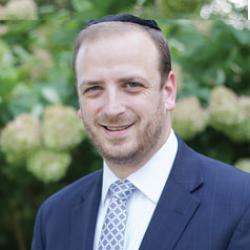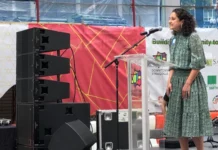
Leslie Feldman
Rabbi Yonah Gross of Congregation Beth Hamedrosh in Wynnewood believes that helping people understand Jewish law, not just as a list of do’s and don’ts but as a part of a Masora tradition, is an important goal of learning Torah.
“The principles of how to follow the Torah were given to us by God at Mount Sinai and further developed through the oral tradition, rabbinic enactments and responses to changing circumstances for thousands of years,” Gross said. “We are still working on applying the Torah to the world’s ever-changing realities.”
So, every Monday for the past 14 years, a group of six to eight men from the synagogue study Jewish law together. It used to be an in-person meeting, but since COVID, it is conducted on Zoom. With the switch to online learning, the class has attracted some attendees from outside the area.
The group has gone through the text of the Shulchan Aruch (code of Jewish Law) and has covered almost the entire section of Yore Deah. The subject matter includes the kosher laws, laws of engaging with gentiles, the prohibition of lending on interest, mezuzah, prohibited mixtures when planting, the laws of charity and circumcision.
“We began with the laws of Yom Tov and some of the laws of Shabbos, which is in the Orach Chaim (Way of Life section), Gross said. “We then moved on to the laws of Kashrus, which is found in the Yore Deah section. After we finished that group of laws, we just decided to continue on through the Yore Deah section, which is the ‘miscellaneous’ section of the Shulchan Aruch.
“This has led us to cover areas that are rarely studied in-depth by laymen, including the laws of tzedakah, honoring parents and the laws of writing a Sefer Torah. We have even covered some areas that are considered a little more esoteric, such as shatnez (prohibition of wearing clothing that has a mixture of wool and linen), ribbis (lending money on interest) and Bechoros (the sanctity of a first-born animal).”

Joel Horowitz has participated in the class since its inception.
“I appreciate delving into the primary and secondary sources that form the foundation of Jewish Law. Rabbi Gross clearly elucidates the development of Jewish Law, which is a fascinating process.”
Also attending is Gross’ father Mark, who joins the group from Queens, New York.
“This Shulchan Aruch shiur is unique in that it’s intended to reach those with a strong background because it is a high-level class that involves in-depth textual analysis of sources that provide nuance to a very complex topic,” Gross said. “You don’t often find this level of depth outside the yeshiva environment.”
Virtually every class (950 to date) was recorded and uploaded to YUTorah.org.
“Because many of the topics are rarely taught at all, much less outside of yeshivas, my classes have been picked up by people all over the world,” Gross said. “From seeing classes that other rabbis post on the internet, as well as what I learn from what my colleagues are doing and from their reaction when they hear what I’m teaching, I think it’s pretty safe to say that this style of class is pretty rare.”
Gross recalls getting a phone call from a man in Belgium concerning a particular issue in the laws of ribbis.
“I asked him why he is calling me, and he said, ‘Well, I was looking around the internet for an opinion on this, and your class is the only thing that came up that addressed this issue.’”
It will be about a year and a half before the group completes the 403 chapters of Yore Deah. They started at Chapter 87, which leaves some from the beginning of the book.
“Then there are the other volumes,” Gross said. “We have plenty to keep us busy for years to come.”
Leslie Feldman is a Philadelphia-area freelance writer.






